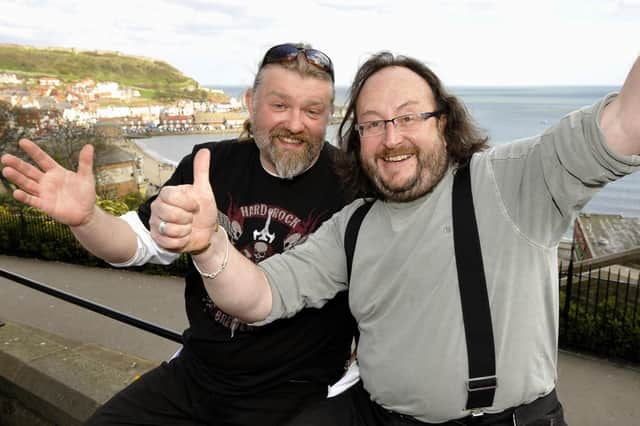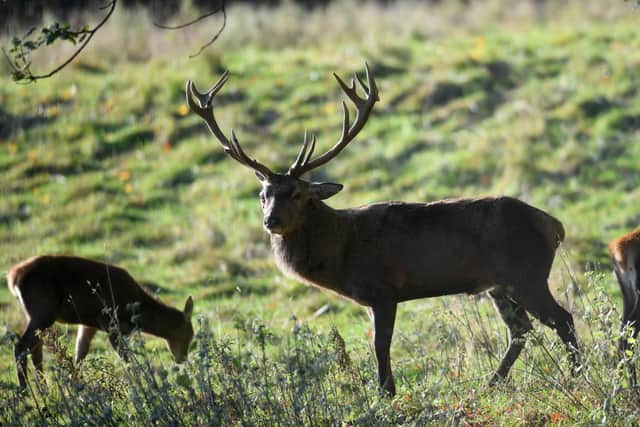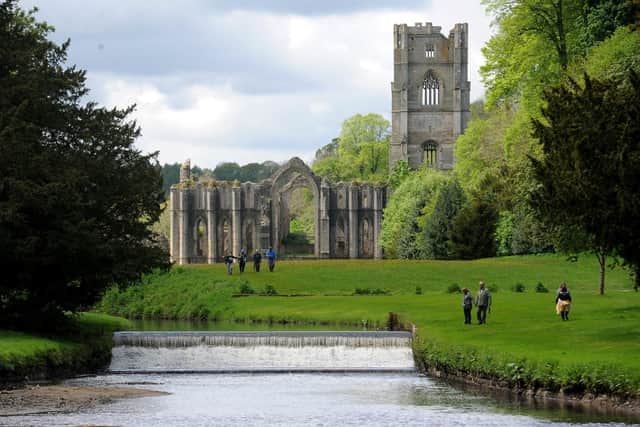National Trust wokeness exposed by Hairy Bikers – Sarah Todd


Whatever walk of life they are from, National Trust members will today be putting their best foot forward and converging on the Harrogate Convention Centre for the organisation’s Annual General Meeting (AGM).
Advertisement
Hide AdAdvertisement
Hide AdAmong their number will be a campaign group called Restore Trust, which is kicking back against what it sees as wokeness – that modern word that covers the holier-than-thou brigade – by trying to put candidates on the charity’s 36-seat governing council.


It’s about time. The rise of the educated non-country dweller has been meteoric during the Covid-19 pandemic and all its associated zoom meetings and virtual votes. Time to get some old-fashioned bums on seats and see how the land really lies.
On the morning this writer was first asked to pen a piece about the meeting, she was watching the television chefs The Hairy Bikers, touring around the Lake District tasting local delicacies.
By chance they were visiting a National Trust-owned farm and before the young tenants had even uttered a word it was obvious they weren’t local sons (or daughters) of the soil.
Advertisement
Hide AdAdvertisement
Hide AdThey were a perfectly pleasant and enterprising young couple, but it’s so rare nowadays to hear of anybody from among the local farming community getting a tenancy with the National Trust. To me, it’s like a Harvey Smith-esque two-fingered salute to those from the neighbourhood who have farming and country ways in their DNA.


Are they weeded out at the initial application stage because their bids aren’t as polished as those wanting to relocate from out of the parish or is it a deliberate policy to bring new blood in?
About 15 years ago, this correspondent travelled up to the Lake District to write a piece for a glossy magazine about a National Trust farm. Again, another super hard-working family, but driving home afterwards there was a slightly bitter-sweet feeling. The author James Rebanks, who is the third generation of his family to farm up in the Lakes, manages to articulate the unspoken awkwardness felt – as a farmer’s daughter – back then.
He writes with great poignancy about local country people, the indigenous species if you will, increasingly feeling like outsiders in their own landscape. He’s spot on. It’s a very real issue, especially with property prices forcing youngsters out of the villages where they have grown up; homes bought up by incomers.
Advertisement
Hide AdAdvertisement
Hide AdThe veteran broadcaster Melvyn Bragg waded into a row back in 2016 over the National Trust’S purchase of a piece of land. He made bullying accusations after its opening bid of £200,000 above the asking price for the land. In a letter to The Times newspaper, Lord Bragg said: “The National Trust behaved very badly. It put in a bid which was way above that which was reasonable for the land, thus making it impossible for local farmers to get a look in.
“It was a nasty piece of work. Had a billionaire bullied his way into this disgraceful purchase there would have been a deserved outcry.”
At the time, the Herdwick Sheep Breeders Association said: “Another farm lost. Hopes that the farm could be taken on by a new young fell farmer have been dashed.”
There are other rural hot potatoes, like the National Trust’s stance on hunting that some of today’s delegates are angry about. There is at the very least irony between the huntin’, shootin’ lifestyles of the aristocrats who handed over their stately piles and the charity’s unbending attitude towards country sports.
Advertisement
Hide AdAdvertisement
Hide AdWith losses of around £200m since the start of the coronavirus pandemic last year, some straight talking at this year’s Yorkshire-hosted AGM seems long overdue.
Volunteers are undoubtedly a precious jewel in the trust’s crown and must be treated as such. Some of them are alleged to have had feathers ruffled with politically correct training courses and over issues such as the wearing of rainbow-coloured gay pride badges. Others have voiced fears about history being swept under the shagpile for fear of upsetting with our colonial heritage.
The treatment of unpaid volunteers could seem in direct contrast to the big pay cheques being handed out to some of the National Trust’s senior staff. The Restore Trust movement is calling for more transparency over remuneration, expressing concern that 17 employees earned more than £100,000 a year in 2020. It’s calling on the trust to “exercise greater restraint in the setting of executive pay and to adopt the same level of transparency on
remuneration as required by publicly listed companies, and give full details of its executive remuneration policy and the amount earned by each individual”.
Advertisement
Hide AdAdvertisement
Hide AdThere is no doubt that to engage with a new generation the National Trust must move with the times. Its properties and policies must look forward; but not at the expense of the beliefs and values of those who have gone before - or those who know and love the communities they are situated in.
Sarah Todd is a former editor of Yorkshire Life magazine. She is a farmer’s daughter, mother and journalist specialising in country life.
Support The Yorkshire Post and become a subscriber today. Your subscription will help us to continue to bring quality news to the people of Yorkshire. In return, you’ll see fewer ads on site, get free access to our app, receive exclusive members-only offers and access to all premium content and columns. Click here to subscribe.
Comment Guidelines
National World encourages reader discussion on our stories. User feedback, insights and back-and-forth exchanges add a rich layer of context to reporting. Please review our Community Guidelines before commenting.